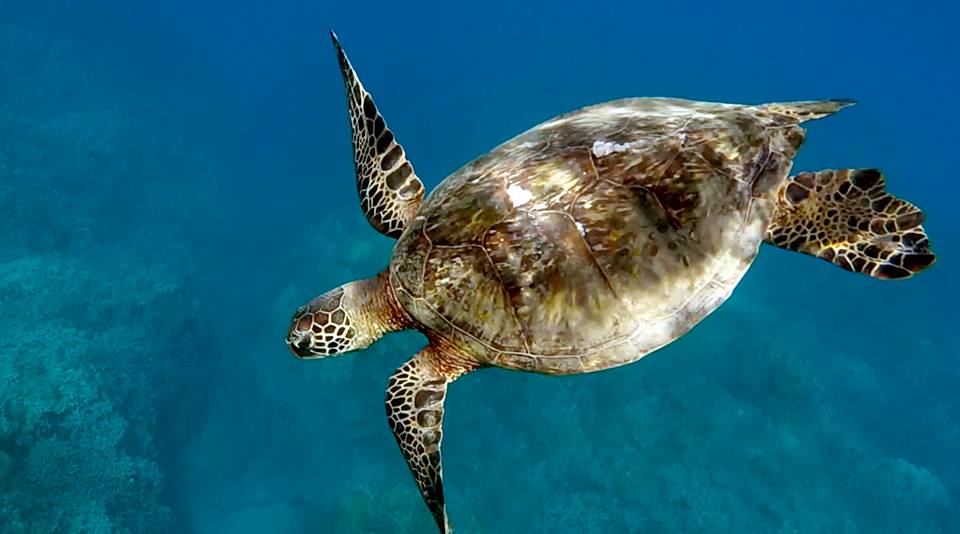Just last month while snorkeling in Hawaii with my family, chance brought me face to face with an enormous green sea turtle.
I'd kicked out a hundred yards or so, where visibility reached about 60 feet. Not long after putzing near the reef, a giant turtle emerged from an overhang some 30 feet down. As mellow as can be, he cruised for a short stretch, and then stopped to munch on an algae-covered rock.
Gathering myself, I took a deep lungful of air and dove down to swim beside him, keeping several feet between us. Thirty seconds passed and I rose for air. As timing would have it, my new acquaintance also needed a breath, and he lazily paddled to the top, not two feet from where I'd surfaced. His tiny nostrils lifted above the water as he caught his breath. Quietly thrilled, I floated beside him, admiring his serenity.
As memorable as this experience was, my up close-and-personal encounters with wildlife are rare. Back on the mainland, it’s harder to find time for nature. And when I do, it's maybe just a lunchtime walk or quick hike on the weekend. But even that counts. Studies have shown that a little time in the great outdoors can improve your mood, reduce stress and decrease depression.
That's why this month, Stanford’s WELL for Life initiative is challenging you to spend a little more time in nature over the course of one week. There’s no hard and fast rule — the idea is to get outside however you can. Take a jaunt around the block, tend to your garden this weekend, take your dog to a park — whatever’s best suited for you. The challenge will last until September 23.
Past challenges from the WELL initiative have sought to help participants boost various areas of their well-being — some have focused on social connectedness, purpose and meaning, physical activity or diet. The challenges are put forth in an effort to take a more holistic approach to health by looking beyond the typical diseased-or-not-diseased definition of health and likewise incorporate well-being.
For each challenge, participants are asked to complete short surveys before, during and after the event to help the WELL team evaluate the potential impact of the challenge on well-being.
To get started, register for the Get Outside Challenge and start thinking about your next nature adventure.
Photo by Hanae Armitage




